Five political science professors at the University of Massachusetts were part of a panel to discuss the effects of the recent midterm elections on Tuesday evening. The professors warned that the “blue wave” does not mean immediate progress.
According to Justin Gross, assistant professor of political science and undergraduate department chair, this was a “blue wave held back by sandbags,” such as voter suppression and gerrymandering.
Meredith Rolfe, associate professor of American politics and public policy, said that 53,000 ballots in Georgia were thrown out because the voter’s name on their ID and ballot had a difference in accent mark. According to Rolfe, 80 percent of those ballots belonged to Black people.
Additionally, Rolfe said that while many women and other minorities won elections, those victories are most likely because the midterms are not “high-stakes” elections.
“Is [the midterm election] really good for gender and is it really good at the state level?” Rolfe asked.
Assistant professor Paul Musgrave warned of the international repercussions of the midterms. He said that because the House of Representatives is majority Democrat, it could result in Trump pushing a more extreme foreign policy agenda. Trump could start with putting “fewer and fewer adults and more and more Trumptistas [in power],” Musgrave said. Musgrave also warned of another nuclear crisis with North Korea.
Professor of political science Ray La Raja stated that when a political party begins to fail, it goes out in two ways: either through manipulation – like voter suppression – or violence. La Raja expressed concern that if Trump does not win the 2020 election, people might turn to violence.
“[The next two to 10 years] will be somewhere in between ‘West Wing’ and ‘The Purge,’” Musgrave said.
Roberto Alejandro, professor of political theory, framed the question, “Can the Constitution survive the level of political polarization in this country?”
“Trump is unleashing the fears that have always been in the American psyche,” Alejandro said.
“Things might not get better and might as well get worse,” Musgrave said.
The panelists blamed the Democrats’ loss of power on their campaign strategy. Rolfe stated that the Democratic National Committee has been forgoing “tried and true” campaign strategies, such as grassroots campaigning, for running TV advertisements.
Kiara Batista, a freshman Portuguese and legal studies major, shared with the panelists how disturbed she was by the gubernatorial elections in Georgia, where Brian Kemp was able to run for office while still overseeing elections as state attorney general.
All panelists agreed with Baptista.
Musgrave attributed Kemp’s potential conflict of interest to political structures that were established during the Jackson administration and the fact that the Constitution does not explicitly mandate easy and accessible voting.
La Raja, however, pointed out something promising in the Georgia gubernatorial race; even with voter suppression, Kemp only led by a small margin.
The panelists also did think that some aspects of the midterms were promising, like the average voter turnout for midterm elections being doubled in, the increased diversity in representation and a big swing to the left in the Midwest.
“And we know how important the Midwest is in the general elections,” La Raja said.
La Raja stated that although women post-midterms will make up only 25 percent of the House, the fact that so many women were elected “is still a feat.”
He also said that with Florida having passed a law allowing felons to vote, the state “is going to be more in play than ever.”
According to assistant professor Justin Gross, New Mexico will be the first state to have a federal delegation completely of color.
La Raja made it a point to say that the midterm does not predict the 2020 elections.
Nonetheless, Rolfe is hopeful about the next 10 to 20 years.
“It will probably be the current generation [that] will make change,” Rolfe said.
Rebecca Duke Wiesenberg can be reached at [email protected].

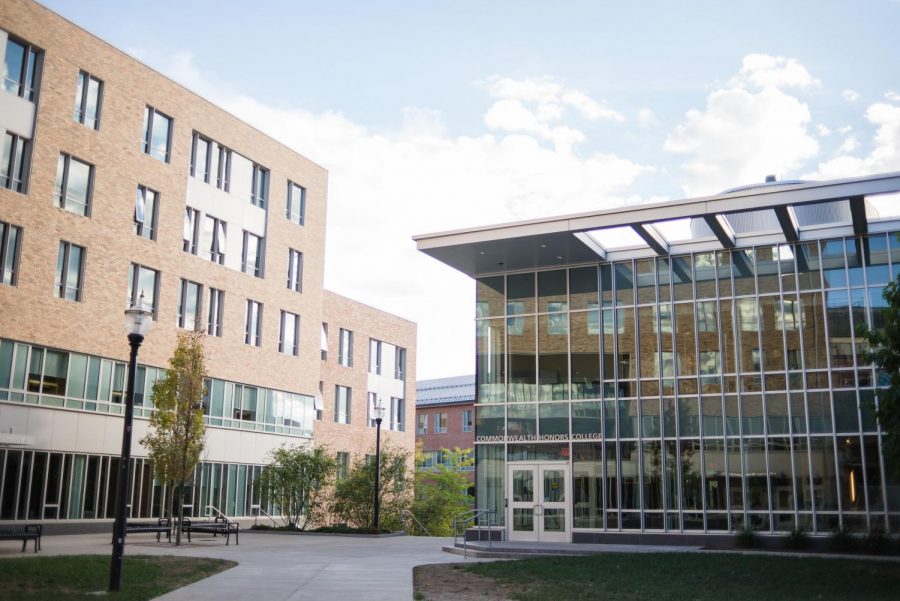







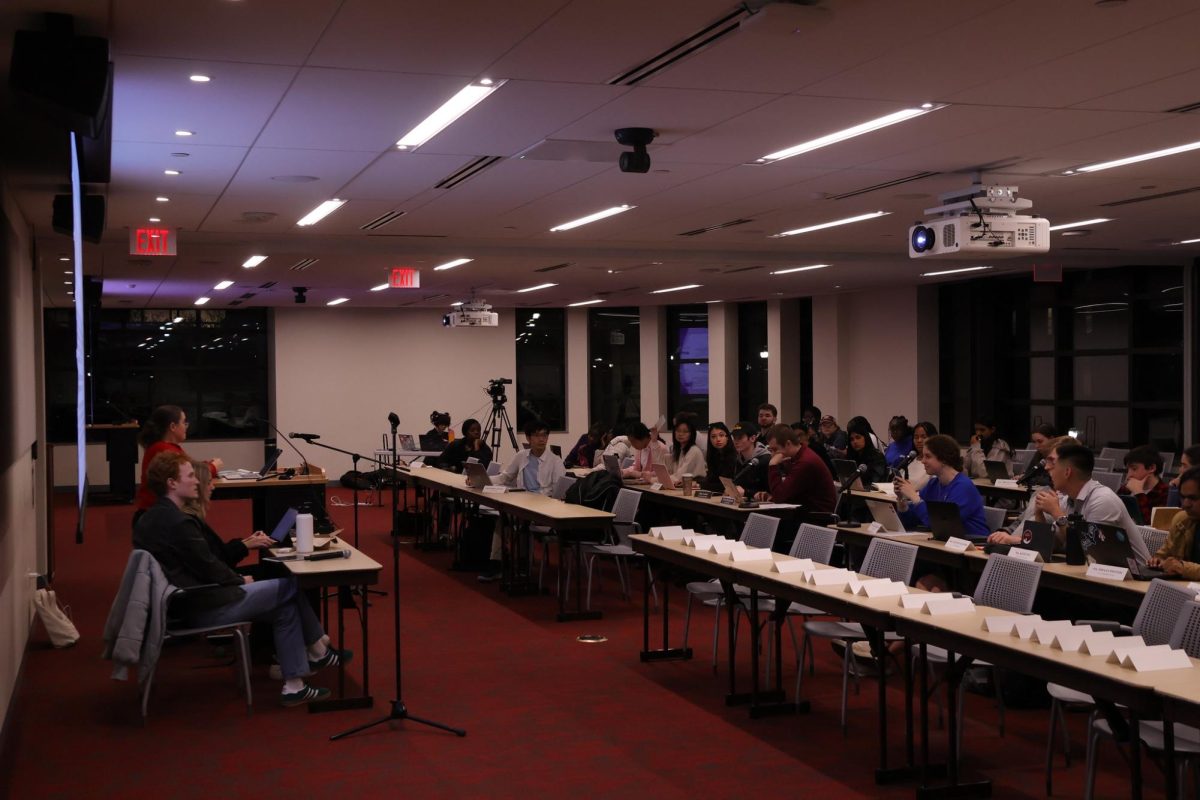
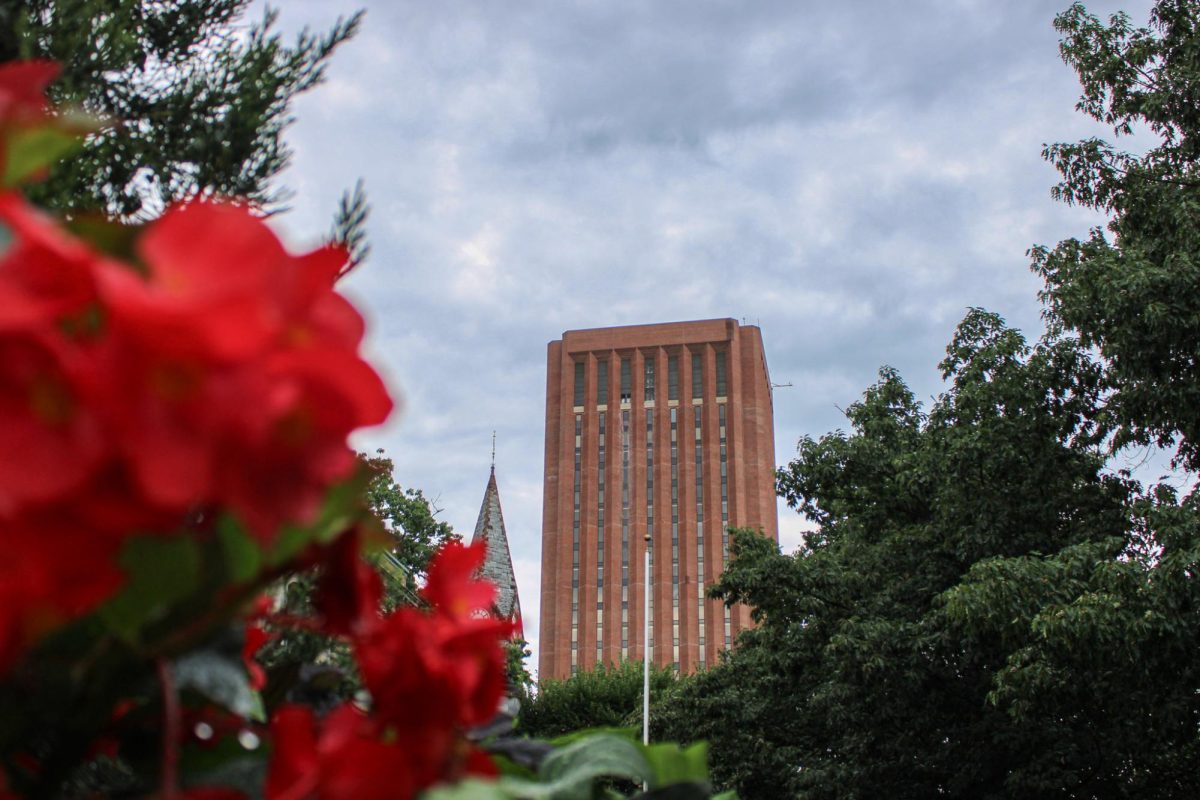


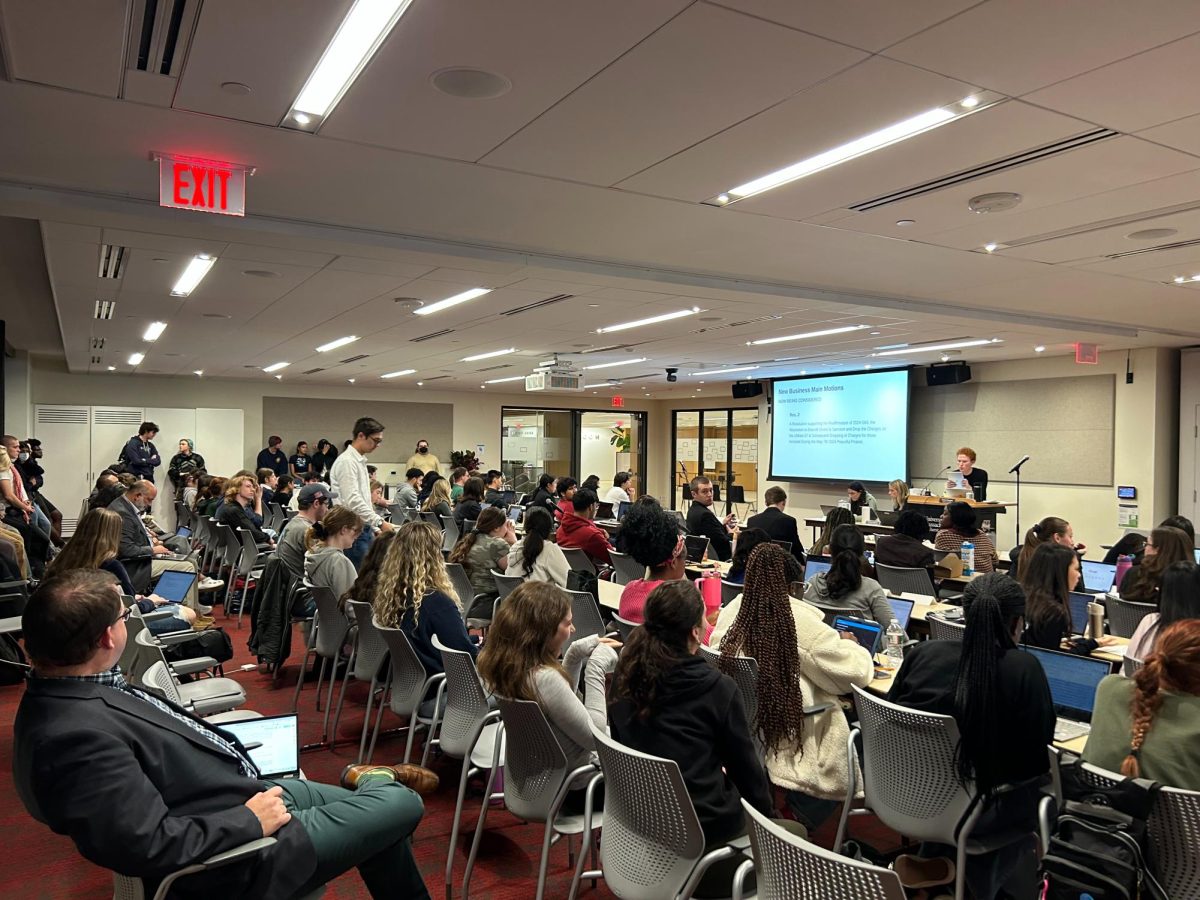
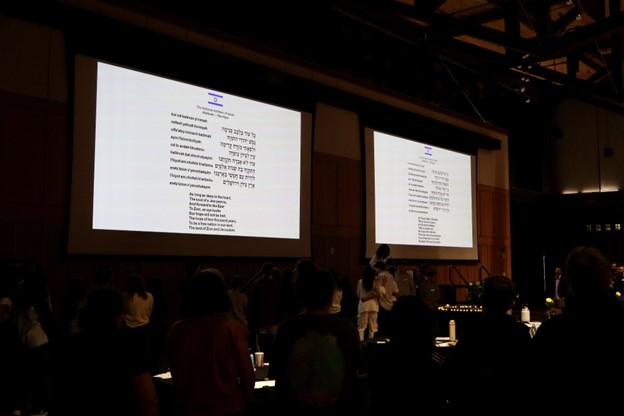
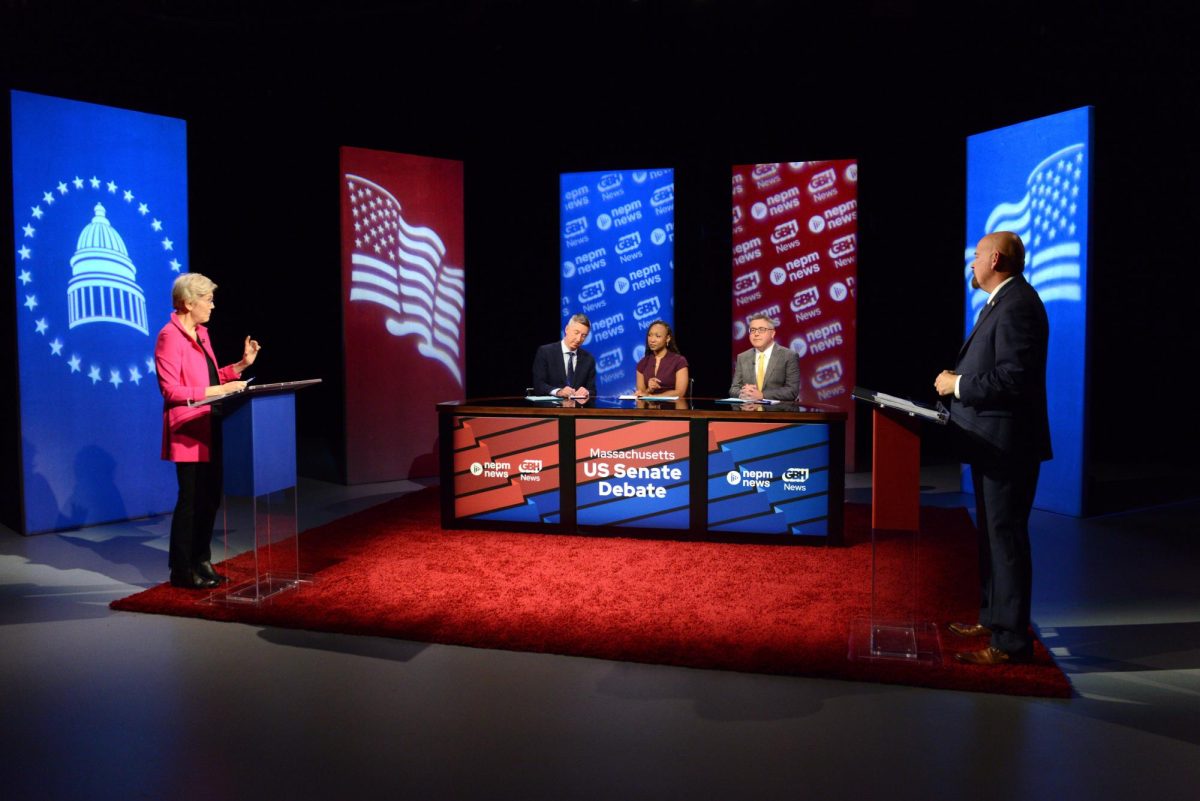
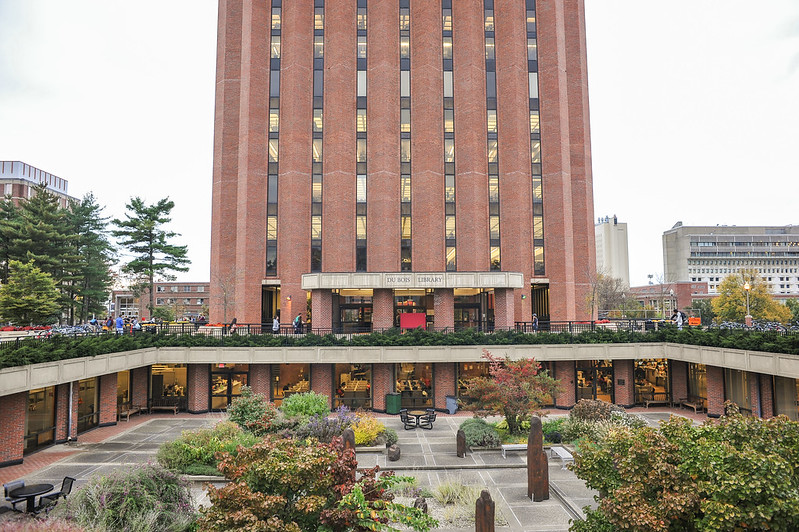
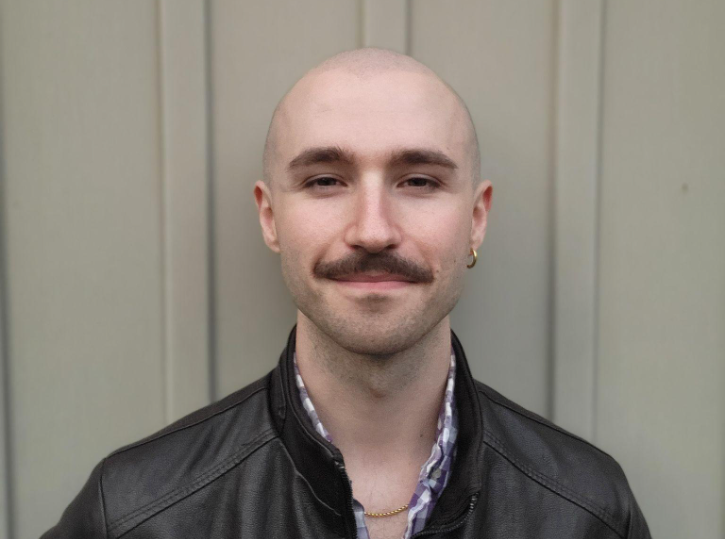


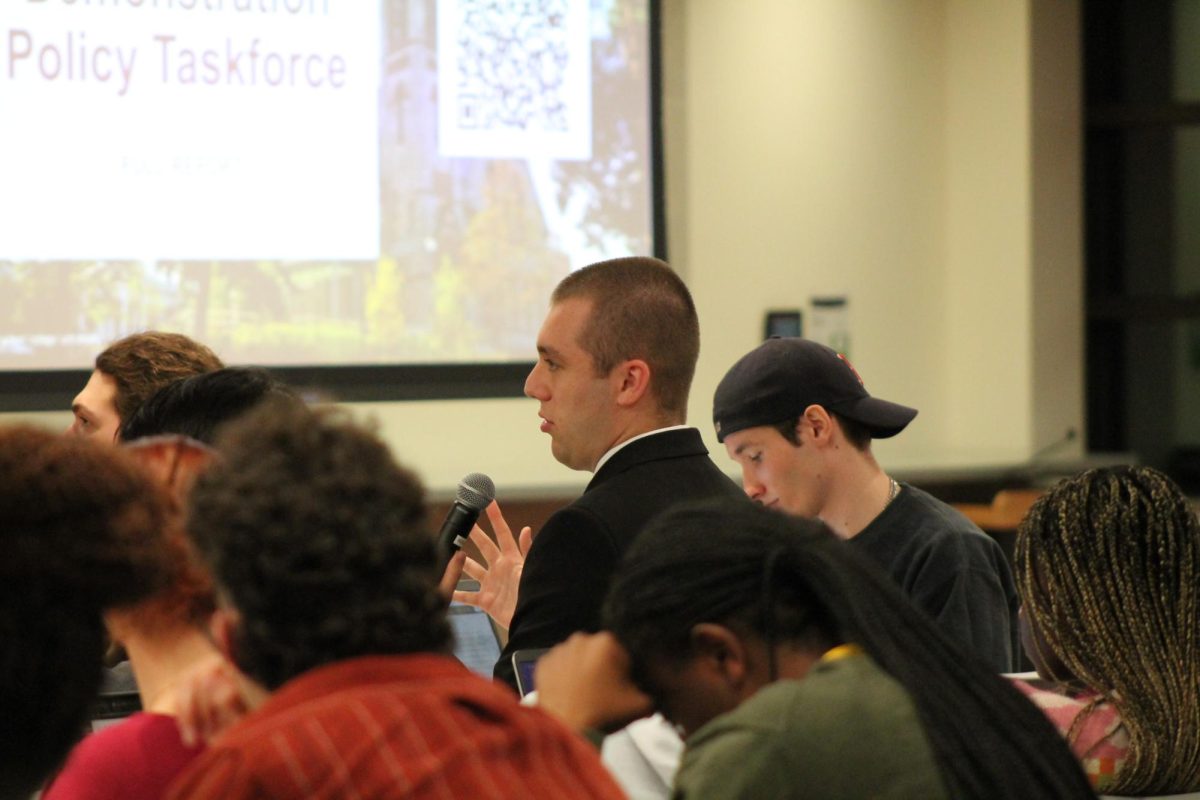
amy • Nov 22, 2018 at 12:07 pm
“Meredith Rolfe, associate professor of American politics and public policy, said that 53,000 ballots in Georgia were thrown out because the voter’s name on their ID and ballot had a difference in accent mark”
It’s right in the artice lol, they were talking about their conspiracy theory that minorities are subject of a conspiracy to prevent them from voting. I have heard more insanity from liberal professors in political science than anyone else, only because they are part of a group that confirms their thinking are they tolerated; otherwise they would be considered crazy.
To Chuck; There is a requirement for a diverse faculty. Umass has a field service manual that requires diverse candidates are hired over non-diverse ones and they have to sign and agree to a diversity statement when they get hired. My friend works here and I obtained a copy and I sent to the Collegian… and they didn’t publish it.
Chuck Martel • Nov 16, 2018 at 11:00 pm
Is this panel a meeting of the Soviet Presidium?
It is a farce to convene an one-sided panel. What is the point? Why not just turn on CNN?
The comments were restatements of falsehoods. Voter suppression? Really?
How do ballots (70,000) suddenly appear in Broward County? Why do they submit the machine recount two minutes past the deadline?
How about we pass a requirement for a diverse faculty?
Let’s start by rereading 1984. No need to lie about the doublethink and doublespeak at UMass.
Hayward • Nov 16, 2018 at 8:28 pm
Amy–Who said anything about voters (specifically minorities) not having IDs? I don’t see it in this article, nor do I recall it coming up at the event. Maybe you were reading a different article.
Amy • Nov 14, 2018 at 4:06 pm
How is it that almost all americans have ID and logically would have to in order to cash their checks, including welfare checks, buy alcohol, get a job, drive, rent an apartment etc; but somehow only for elections there is difficulty in finding an ID and somehow minorities by some unknown reason out of stupidity or some sort magical discrimination where they still have jobs and welfare which require Identification but somehow for elections they don’t have them?
And this is indication of some conspiracy by ‘white people’? This panel sounded like a group of people meeting on Alex Jones; except it was liberals instead of conservatives. They set a pretty low bar for what are supposed to be highly educated university professors.